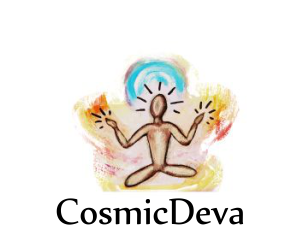What is a Deva?

Pronounced Day-va.
The Sanskrit deva- derives from Indo-Iranian *dev- which in turn descends from the Proto-Indo-European word, *deiwos, originally an adjective meaning "celestial" or "shining", which is a (not synchronic Sanskrit) vrddhi derivative from the root *diw meaning "to shine", especially as the day-lit sky.
Indo-European, Sanskrit word for God, originally thought of as feminine. The modern word Goddess has changed connotations to represent a lesser form of divinity. Deva had the meaning we typically think of as the word God today, however God was thought to be the Great Mother.
In Buddhism Deva's are highly evolved beings who inhabit different levels of existence. Deva's are commonly associated with great beauty and bliss.
Modern New Age versions of Deva's are thought of similarly to angels, nature spirits, or fairies.
Deva gave life to all things. A Deva ( Sanskrit: meaning "radiant" or "shining") refers to a "god" or "deity" found in both Vedic Hinduism and Buddhism. Hinduism's oldest scripture, the Rig Veda, contains hymns of praise to thirty-three different devas (gods) who help to regulate the cosmos in opposition to asuras (demonic forces). While devas are viewed positively in Hinduism as celestial beings of high excellence.
Some Helpful, Some Harmful
Divine beings can either help or harm people’s spiritual journeys. Many of the angelic beings, such as the devas and devis, are benevolent spirits who positively influence people and work to protect them. But angelic beings called asuras are evil spirits who exert negative influences over people and can harm them.
Chapter 16 of the Bhagavad Gita describes some qualities of both good and evil spiritual beings, with good spirits marked by characteristics such as charity, nonviolence, and truthfulness and evil spirits marked by characteristics like pride, anger, and ignorance.
As verse 6 notes, in part: "There are only two types of created beings in the material worlds; the divine and the demoniac."
Verse 5 says that, "The divine nature is considered the cause of liberation and the demoniac nature the cause of bondage."
Verse 23 cautions: "One who transgresses the injunctions of the Vedic scriptures whimsically acting under the impulse of desire, never attains perfection, neither happiness nor the supreme goal."
The devas are functionally equivalent of angels who serve God in the Jewish and Christian traditions.
The asuras are equivalent of demons and fallen angels who serve Satan/ Lucifer in the Jewish and Christian traditions.
